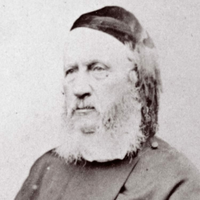
William Barnes
William Barnes (22 February 1801– 7 October 1886) was an English writer, poet, Church of England priest, and philologist. He wrote over 800 poems, some in Dorset dialect, and much other work, including a comprehensive English grammar quoting from more than 70 different languages.
William Barnes (22 February 1801– 7 October 1886) was an English writer, poet, Church of England priest, and philologist. He wrote over 800 poems, some in Dorset dialect, and much other work, including a comprehensive English grammar quoting from more than 70 different languages.
Barnes was born at Rushay in the parish of Bagber, Dorset, the son of a farmer. His formal education finished when he was 13 years old. Between 1818 and 1823 he worked in Dorchester, the county town, as a solicitor’s clerk, then moved to Mere in neighbouring Wiltshire and opened a school. During his time here he began writing poetry in the Dorset dialect, as well as studying several languages (Italian, Persian, German and French, in addition to Greek and Latin), playing musical instruments (violin, piano and flute) and practising wood-engraving. He married Julia Miles, the daughter of an exciseman from Dorchester, in 1827, then in 1835 moved back to the county town, where again he ran a school. The school was initially in Durngate Street, then was moved to South Street. A second move to another South Street site made the school a neighbour of an architect’s practice where Thomas Hardy was an apprentice. The architect, John Hicks, was interested in literature and the classics, and when disputes about grammar occurred in the practice, Hardy would visit Barnes next door for an authoritative opinion.



